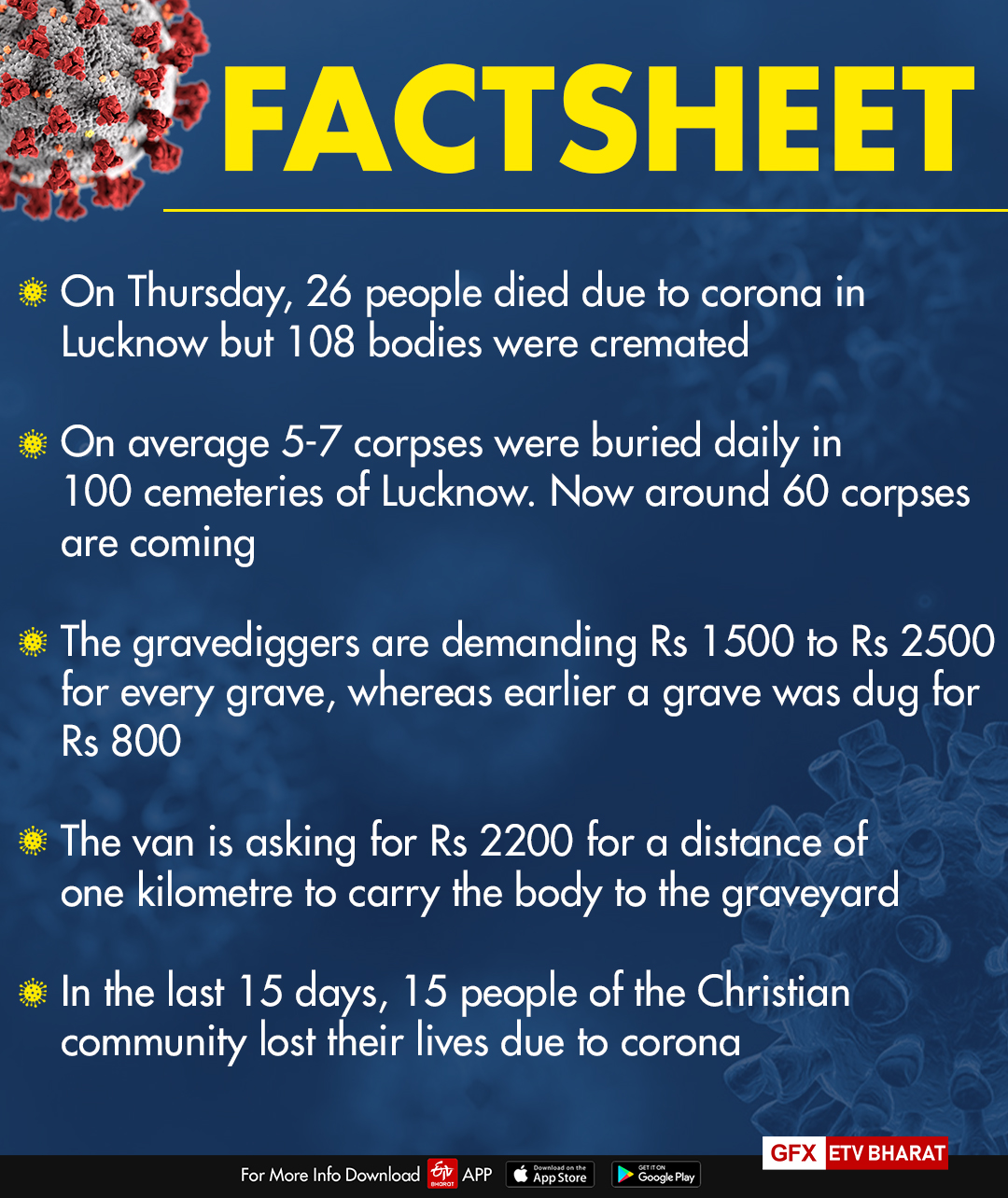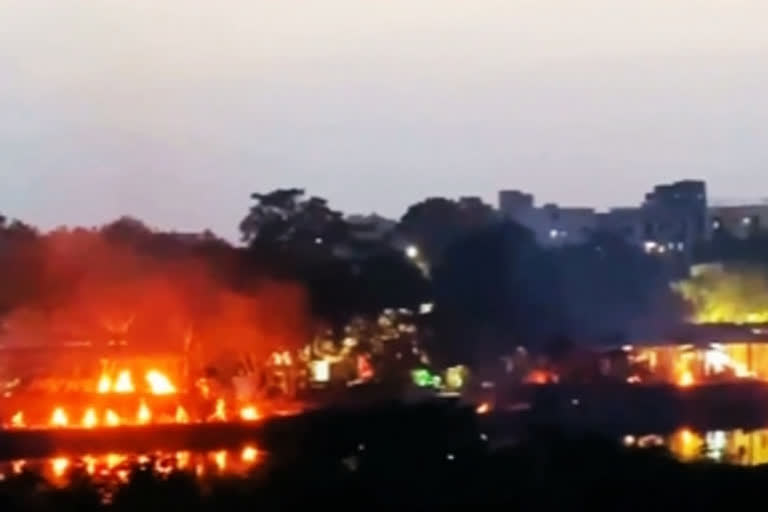Lucknow (Uttar Pradesh): There is a famous line of last Mughal Emperor Bahadur Shah Zafar – "Kitna Hai Badnaseeb Zafar Dafan Ke Liye/Do Gaj Zameen Bhi Na Mili Ku-E-Yaar Mein" When Bahadur Shah Zafar composed this line, no one might have thought that it will become a reality in Lucknow.
The corona infection is fast assuming a critical proportion in the capital city of Uttar Pradesh. On Thursday, 5,183 people were found to have been infected by the coronavirus. As per the government data, 26 people lost their lives. However, bodies were seen being burnt throughout the night at two cremation grounds while 108 bodies were buried. Also, 60 bodies were cremated at different crematoriums of the city.
Also read: Juna Akhara welcomes PM Modi's appeal for symbolic Mahakumbh
Needless to say that in the capital of Uttar Pradesh about seven times more dead bodies are being cremated than the deaths recorded by the government. The long line of the bodies at cremation grounds and cemeteries for their last rites is leading to many doubts among the people whether the official records of the deaths from corona are accurate or not. The second question is whether the patients of corona are not reaching the hospitals. In this case, they are not being investigated properly. Due to all this, the official figure of deaths is much less than the actual situation.

According to Lucknow City Commissioner Ajay Dwivedi, 108 dead bodies were cremated late Thursday night at Bhaisa Kund and Gulala Ghats in the city. Those associated with the crematoriums say that due to lack of space at the crematorium these days, cremations are being performed on the platforms and other vacant places as well. It is not only the number of dead bodies that have suddenly increased at the crematoriums but even in the cemeteries, there is a huge line for the burial of bodies.
Also read: Three Covid patients die as oxygen supply runs out in UP hospital
Imam Abdul Matin of the cemetery committee said that there are a total of 100 cemeteries in Lucknow including large and small. Usually, five to six people are buried in these cemeteries on normal days. At present, on average 60 to 70 people are being buried daily. More bodies are being taken to the graveyard at Aishbagh, which is managed by Sunnis and Karbala graveyard of the Shias at Talkatora.
More bodies, higher rates for digging a grave
On Thursday, the father of a city resident Adnan Danish had died. He along with his kith and kin reached the cemetery of Aishbagh to bury his father’s body. Adnan Danish said that due to the sudden increase in the number of deaths, one has to wait for a turn to bury the body. The gravediggers used to take Rs 800 per grave. Now the gravediggers are demanding Rs 1500 to Rs 2500 per grave. The sad thing is that for those who are paying more money, the grave is being dug first while others have to wait.
Also read: Rajnath directs DRDO teams to prepare 2 covid hospitals in Lucknow
Exorbitantly charged for carrying the body
Adnan Danish said that his father died in a medical college. Aishbagh cemetery is just one kilometre away from there. When he booked the carriage, he was charged Rs 2200 to ferry the body to the cemetery. He also had to make this payment under compulsion.
No space crunch in cemeteries
According to the cemetery committee’s Imam Abdul Matin, there is no shortage of space in the cemeteries of Lucknow even after the burial of such a large number of bodies. Many tombs in the cemetery are old. Places are empty where other bodies can be buried.
Also read: Yogi to set up 1,000-bed facility to cope with Covid rush
In a Christian cemetery, 15 burials were done in 15 days
In the last 15 days in the capital Lucknow, 15 people of the Christian community died of corona infection. Father John D’Souza says that the corona infection is steadily increasing. When an infected patient dies and is brought for burial, only five people are allowed to enter the cemetery to bury the body.



